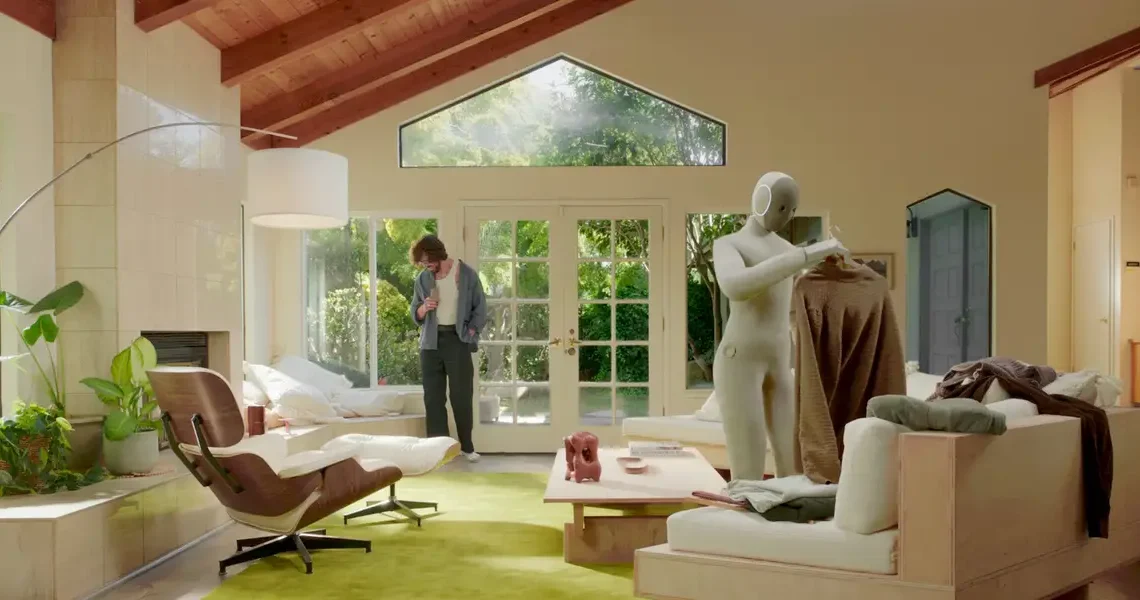Science fiction is imaginary — until, suddenly, it isn’t.
We are now on the brink of living in a world populated by humanoid robot assistants, a timeless trope of futuristic fiction. Right now, it’s more the world of the “Jetsons” than that of “Terminator,” but that’s not always readily apparent when you see the tall, sleek robots that companies are eagerly demoing.
The founders of some of America’s most promising robotics startups say that we’re not far away from a world in which humanoid robots are autonomously completing tasks in the home and on factory floors.
Business Insider compiled a list of some of the most well-known US companies in the space to highlight the current state of the humanoid robotics industry — and where it’s headed.
Tesla
While Tesla may be best known as an EV maker, the company has made its humanoid robot a key part of its future.
Optimus, Tesla’s humanoid robot, is often trotted out at company events. It’s been seen serving drinks, dancing, cleaning, and taking out the trash — at varying levels of autonomy (it’s still very much in development and often tele-operated). The company says it is working to deploy its first fleet of Optimus robots in Tesla factories by the end of the year, but commercial production is further out.
Tesla CEO Elon Musk is motivated to bet big on Optimus. Among other benchmarks, he will need to deliver one million new Optimus robots over the next decade to fully earn his $1 trillion pay package, which Tesla shareholders approved in early November.
During the company’s third-quarter earnings call, Musk said that the robot “has the potential to be the biggest product of all time” and projected that Tesla would eventually make 1 million robots every year. He has also said that Optimus would eventually account for around 80% of the company’s value.
At the company shareholder event in November, Musk even suggested that Optimus could “actually eliminate poverty.”
Figure
CEO and founder Brett Adcock says Figure is building its machines on the belief that “the humanoid robot will be the ultimate deployment vector for AGI.”
AGI, or artificial general intelligence, is a still-theoretical and much-debated technology milestone generally viewed to be when AI can reason as well as humans. It’s the thing all the leading AI companies are elbowing their way toward.
The company has $2.34 billion in funding, according to PitchBook.
The company’s latest robot, Figure 03, is designed for household tasks like laundry, cleaning, and doing dishes.
The company says its overall mission is to “develop general-purpose humanoids that make a positive impact on humanity and create a better life for future generations,” especially ones that can “eliminate the need for unsafe and undesirable jobs — ultimately allowing us to live happier, more purposeful lives.”
In the near-term, like “single-digit years away,” humanoid robots will be capable of doing useful work, Adcock said recently on the tech podcast “Around the Prompt.” He told Salesforce CEO Marc Benioff at the annual Dreamforce conference in October that Figure was building “a new species.”
1X
1X, a dual Norwegian-American robot maker backed by OpenAI, is on a mission to develop “general purpose robots that can coexist with humans and elevate humanity,” according to its website.
To that end, it has two series of robots: Neo, designed for domestic tasks, and Eve, designed for industrial use in factories. The company recently began taking orders for Neo, which will cost $20,000 or a $499 a month subscription with an expected US launch in 2026. For now, the robots will require owners to be okay with them being tele-operated by a human outside the residence as Neo is trained.
“We are cloning human thought and behavior into a machine, alongside providing foundation models for robotic safety,” Bernt Øivind Børnich, the CEO and founder, told Business Insider in 2024.
He said the company, which is more than eight years into developing androids, is seeing a clear market for its innovations.
“What is unique about us is that we have an android that can be safely deployed with humans, which opens up new consumer markets,” Børnich said. “These are complicated products looking for a market but we now have commercial traction which previously hadn’t been proven out.”
The company has raised $140.36 million in funding as of July 2025, according to PitchBook. The Information reported in September 2025 that the company was seeking an additional $1 billion in funding.
Agility
Digit, Agility’s 5-foot-9 humanoid robot, became the first of its kind to be “paid” for performing real work in 2024.
Under a multiyear deal with GXO Logistics, Agility deployed Digit at Spanx’s women’s wear factories, where it moves boxes and places them onto conveyor belts, and just hit 100,000 totes moved to date, a spokesperson for the company told Business Insider by email. The company has also deployed its robots with Schaeffler Group and Amazon, Agility’s spokesperson added.
Peggy Johnson, an alum of Microsoft and Qualcomm, who became Digit’s CEO last year, previously told Business Insider that it’d soon be “very normal” for humanoid robots to become coworkers with humans across a variety of workplaces.
Boston Dynamics
Boston Dynamics, which was founded way back in 1992 and which is perhaps most famous for its “robot dog,” has built and deployed a suite of advanced robotics over the years.
Hyundai acquired the firm in 2021 for $1.1 billion. In April, Hyundai announced a $21 billion investment in the U.S., including $6 billion to promote investment and partnerships in the US.
Its viral dog-like robot, Spot, is used to inspect building sites or oil and gas facilities. An artist-in-residence at SpaceX has even trained some Spot robots to paint.
More recently, Boston Dynamics released a fully electric version of Atlas, its humanoid robot, which the company is now exploring for commercial use, starting with part sequencing, a common logistics task that involves arranging parts correctly in order for the cars that are being assembled, according to a company press release.
Boston Dynamics has long been a leader in robotics. Its founder, Marc Raibert, said in a 2024 podcast interview that “it’s hard not to think that seeing what Atlas is doing is a little bit of an inspiration” for Tesla’s Optimus.
Apptronik
Apptronik is an Austin-based humanoid robotics startup that spun out of the University of Texas’ Human Centered Robotics Lab in 2016.
It unveiled its first humanoid, Apollo, in August 2023.
It had $772.78 million in funding as of November 2025, according to PitchBook.
“The big idea is a humanoid robot should be able to fit in all the places that a human can fit into and use all the same tools that humans can use,” Apptronik CEO Jeff Cardenas told Business Insider at the time. “That allows them to integrate into a world that’s built for us versus having to modify the world for the robots.”
The company is targeting a new funding round of $500 million, which would value it at $5 billion, according to the Austin Business Journal.
Read the original article on Business Insider
The post 6 leading humanoid robot companies worth watching appeared first on Business Insider.




